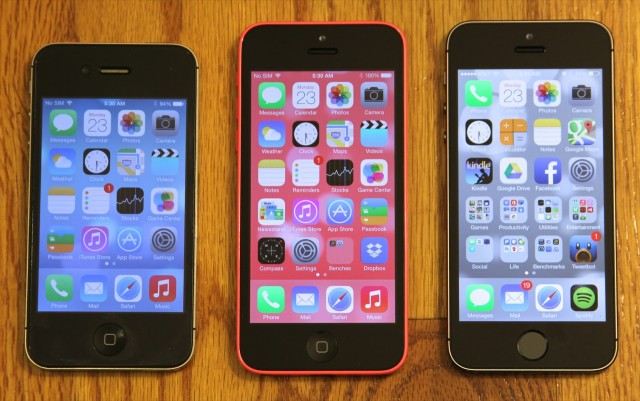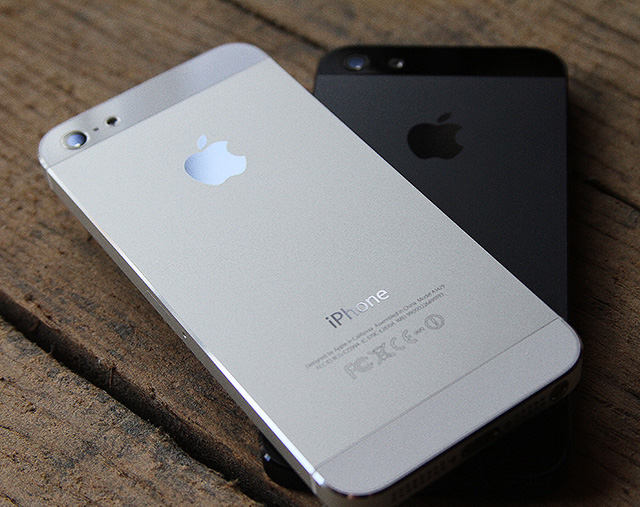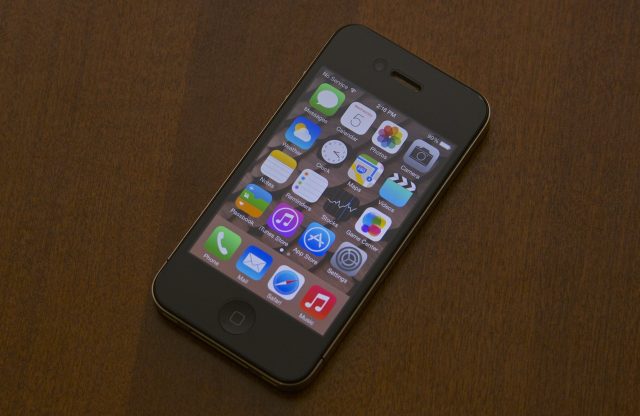
A new iPhone is here. You've spent most of the day watching Apple's announcement, the coverage around it, the reaction to the announcement and the coverage, and the reactions to those reactions. It's the standard tech news rigmarole, which can be fun, but ultimately doesn't really help people make purchasing decisions.
Let's assume you're a current iPhone owner, and you're being tempted by the new one's wiles. We're here to throw some water on the early adoption fire, to be the voice of reason that tells you whether it's really practical to upgrade or not. Here's a list of all the phones that are going to run iOS 8, and what you should be thinking about if you're looking for a replacement.
iPhone 5S owners: Keep your phone
This recommendation doesn't surprise anyone, right? If you have an iPhone 5S, you didn't buy a phone all that long ago. Your iPhone supports pretty much every iOS 8 feature, from Handoff, to the performance-boosting Metal graphics API, to 64-bit apps, to TouchID. Given Apple's reputation for secrecy even among different internal teams, it's a safe bet that a whole bunch of iOS 8 was developed on an iPhone 5S, for an iPhone 5S.
You should really only worry about upgrading if having new stuff is part of your professional responsibility (like, say, if you review phones for a living and it's your job to keep up with this stuff). Otherwise, keep on trucking with the 5S.
iPhone 5C owners: Also keep your phone
If you own an iPhone 5C, it's probably safe to assume a couple of things about you: first, you bought your phone at some point within the last 12 months, and it's still probably in pretty good shape if you've taken care of it. Second, there was already a faster, "better" iPhone available for you when you bought it. Having the newest and fastest thing just because it's the newest and fastest thing may not be important to you.
So we'll encourage iPhone 5C owners to hang on to their devices for at least another year. In addition to the reasons outlined above, you've still got your relatively speedy Apple A6 SoC and support for most of iOS 7 and iOS 8's most interesting hardware-reliant features—Handoff, AirDrop, and all of the other Continuity stuff. Your camera is pretty solid. You don't have TouchID, but that is a "frosting" feature, not a "cake" feature.
iPhone 5 owners: Maybe keep your phone?

Here's where stuff starts to get blurrier. On the one hand, the iPhone 5's hardware is substantially identical to the iPhone 5C's, and it supports all of the same features. On the other hand, if you've had the phone for two years, it's probably beginning to show signs of wear. You're probably out of (or nearly out of) warranty, even if you bought AppleCare+. If you use two-year contracts to subsidize your phone, you're probably up for an upgrade anyway. And there's a better chance you're an early adopter than if you had a 5C.
If you've had your iPhone 5 for two years and you're no longer as happy with it as you were, you have perfectly good reasons to upgrade your phone. If you've had it for less time or if you're still pretty happy with it, then you still won't be missing much if you keep it—you'll be happy with how it runs iOS 8, and you shouldn't run into any problems related to CPU or GPU speed or RAM.
If you'd like to hang on to your iPhone 5 another year and you've been having problems with it, consider checking to see if you're covered under either Apple's iPhone 5 power button replacement program or the more recent battery replacement program. There's a chance you can get your gripes addressed for free! And even if you can't, you may still be able to find an affordable repair option to keep your device kicking for another year.
iPhone 4S owners: Probably time to upgrade
The iPhone 4S has had a good run. It's going to run iOS 8, and it will probably be mostly fine at it (though we'll be evaluating it in an article alongside the main review, as we usually do). But it's nearing the end of the road, and while you'll have support for many of iOS 8's new features and APIs, the ones that rely on particular hardware aren't going to be present.
This already began in iOS 7 with AirDrop, and, lest ye forget, you're still using a phone without LTE support. In iOS 8 you're missing a few other things, including the Handoff features that allow for beaming content between two iOS devices (or an iOS device and a Mac, once Yosemite's out). Although our initial research indicated that the iPhone 4S should technically be able to support Handoff, it appears as though that's not the case.
You're also dealing with a slower Apple A5 SoC and 512MB of RAM, which may be a problem if you're using a lot of widgets or opening a lot of Safari tabs. And some of iOS 8's new features—the bar above the keyboard for typing suggestions, for example—are going to eat up screen real estate that the 4S doesn't necessarily have to spare. You probably can use iOS 8 on the iPhone 4S, but you're beginning to give up some pretty desirable features.
iPhone 4 and older owners: Please upgrade!

We began with a common-sense suggestion, we'll end with a common-sense suggestion: you stand to gain a lot by upgrading from an iPhone 4 or something even older. Speed. Siri. All of the hardware-dependent iOS 7 and iOS 8 features we talked about above. And that's not all!
See, iOS developers are a pretty active bunch. Many of the big names move quickly, encouraged by the generally quick adoption rates for new iOS versions. Sometimes, those developers will maintain support for the current version of iOS and one or two older ones, but other times they'll switch to supporting just the newest version, since that's where most of the users are already going to be. This problem will only get worse as iOS 8's lifecycle continues. And to use at least a few of iOS 8's new features, developers will be required to have their apps target iOS 8 and only iOS 8.
Any of the other phones on this list will still be up on all the latest APIs and things, so they won't have a problem getting left behind by app developers. If you're using an older phone, though, you really owe it to yourself to get something newer. It's not just about speed (though, wow, you'll love the speed increase)—it's about support.
When to ignore this advice
It should go without saying, but these are just general guidelines that we think will work well for most people. Only you know what you really need in a smartphone—maybe the screen size is absolutely your least favorite thing about your current phone! Maybe your phone doesn't have enough storage space, or it's busted, or you just have someone you'd like to sell or hand it down to. Only you know how best to spend your money.
If you've got an itchy technology trigger finger, though, this is the article for you. Give your current iPhone a good, long look, read the guidelines above, and make the best decision you can.
reader comments
91